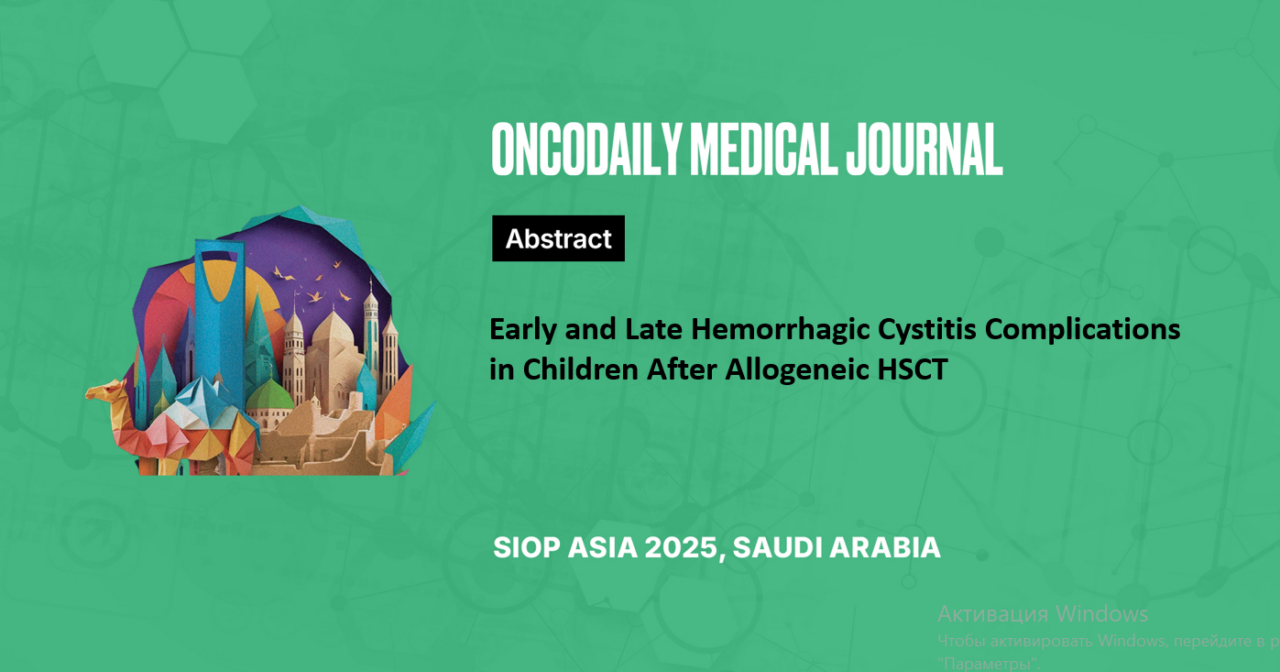Early and Late Hemorrhagic Cystitis Complications in Children After Allogeneic HSCT
Abstract
Introduction: Hemorrhagic cystitis (HC) in children – is an allo-HSCT complication that occurs in 8-25% of cases. Aim is to identify HC features in allo-HSCT pediatric recipients.
Methodology: Acute kidney injury (AKI) frequency was determined based on glomerular filtration rate (GFR) dynamics and pRIFLE scale. The bladder, ureters and pelvicaliceal system (PCS) condition was assessed via ultrasound. Blood transfusion need was analyzed during first 50 days after allo-HSCT.
Results: The study included 581 patients under 18 years old who received allo-HSCT. Total cumulative HC frequency after allo-HSCT with competing risks was 22.1%. The median day of HC manifestation and duration were 32 and 17 days, respectively. The first severity grade occurred in 18.8% (n=24), second in 21.9% (n=28), third in 43.8% (n=56) and the fourth in 15.6% (n=20). Ureters and PCS enlargement was noted in 32% (n=41). Of these, pelvicaliectasis occurred in 36.6% of cases (n=15), ureterectasis in 46.3% (n=19) and pelvicalicealureterectasis in 17% (n=7). Bilateral ureters and PCS enlargement was noted in 34.1% (n=14).
PCS clots were detected in 39% (n=16). Ureters and PCS enlargement resolved within 3 months after HC discontinuation. The baseline GFR in the groups did not differ and was 152.5 and 161.1 ml/min/1.73 m2 (p=0.39). The minimum GFR at D+100 also did not differ – 95.4 and 93.8 ml/min/1.73 m2, p=0.7. The incidence of AKI according pRIFLE scale did not differ – 84.8% (n=384) in control group and 90.6% (n=116) in patients with HC (p=0.12). The median blood transfusions in HC group was higher than in control group – 3 versus 2 units (p=0.01), but significantly lower than in patients with gastrointestinal bleeding (GI) (6 units, p=0.003)
Conclusion: All PCS disorders in HC were resolved and were not accompanied by AKI frequency increase. HC increases blood transfusions need, but lesser than GI bleeding.





